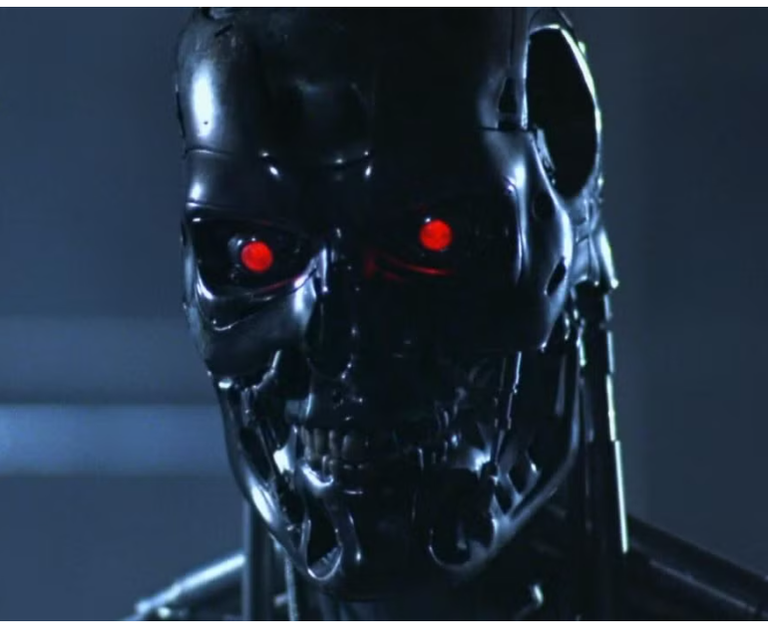
Image Source
Every week or so, a new article emerges about the mystical powers of artificial intelligence. The automation we are told, is coming for everyone’s job. It is only a matter of time. Is this really the case? Even more alarming, a dominant trope has emerged of machines and computers gaining sentience. They then use this newfound consciousness to enslave or otherwise harm humanity. Is this even possible?
The Terminator
The idea of an artificial intelligence program gaining sentience goes against the very nature of how current machine learning works. At its core, artificial intelligence utilizes gradient descent and Bayesian probability to compare an input with large data sets. Then, based on the figures of merit used to “train” the ai, it predicts the following output. This is a far cry from sentience, as the machine is wholly incapable of experiencing the world from a subjective point of view. It simply regurgitates an amalgamation of the data models that it has been trained on. In fact, rather than growing more capable, this fact has led to AI models becoming harder to produce. So much low-quality AI content now exists on the internet in proportion to human generated content that in some cases, AI models are getting trained utilizing the textual output of other AI models. This leads to an overall degradation in the quality of some models. Thus, at present, rather than posing a threat to humanity, it actually poses a threat to itself.
AI could potentially pose a danger for the very reason that it will never take over the world; by its very nature, it cannot anticipate something that is outside of its dataset or feel emotion. Take, for instance, an AI that was programmed to drive an ambulance. Suppose it was developed so that it prioritized getting a patient to the hospital quickly over all else. Since the robot would not feel any emotions such as fear, it would not slow down even if how it was driving put other drivers at risk.
Taking Jobs
Artificial Intelligence has a much higher risk of eliminating jobs than it does the human race. Much fearmongering has been made about how it will replace us all; however, this is simply not true. Before it referred to an electronic device, the word computer referred to an individual who would do computations by hand. Obviously, with the advent of electronic devices, this job, along with many others, has become increasingly irrelevant. Is everyone out of jobs? No- definitely not.
The computer in the Lunar Module that landed on the moon had fewer kilobytes of RAM than my graphing calculator. The size and ability of computers have changed significantly since then; however, the underlying principles of orbital mechanics have not. For a machine to automate a function or process, and individual or team has to have in depth knowledge of the underlying theory and mathematics behind it as well as the technical capability in the software, not to mention the fact that a whole team of highly skilled maintainers would be required to keep the system operational.
The main issue then is that the nature of jobs is changing. Many instances of low-skilled, especially white-collar jobs, may be subject to automation. People who previously held these positions are then left with two choices. They can either be left behind or work to develop a different skill set that is valued in the new line of business. Companies do this all the time. A great example of this phenomenon is the number of car companies that started out as carriage companies. When they recognized that new technology threatened their livelihood they were forced to adapt, and the employees of said companies did as well.
Skilled Trades are Safe
Skilled trades such as carpenters, welders, mechanics and the like are thus far relatively safe from having their jobs automated. This, coupled with the fact that they can provide substantial incomes, means that individuals who find themselves automated out of a job would have a great place to turn to. Robots thrive in environments where a single thing is repeated countless times, and due to the creative and varying demands of each job in the skilled trades, they are extremely difficult to automate. When it comes to protecting people from the outcomes of automation, one of the best ways could be grants and more funding toward vocational schools. The economy of the future is based on skill and information. The more skills and information an individual can acquire, the better their job prospects will be.